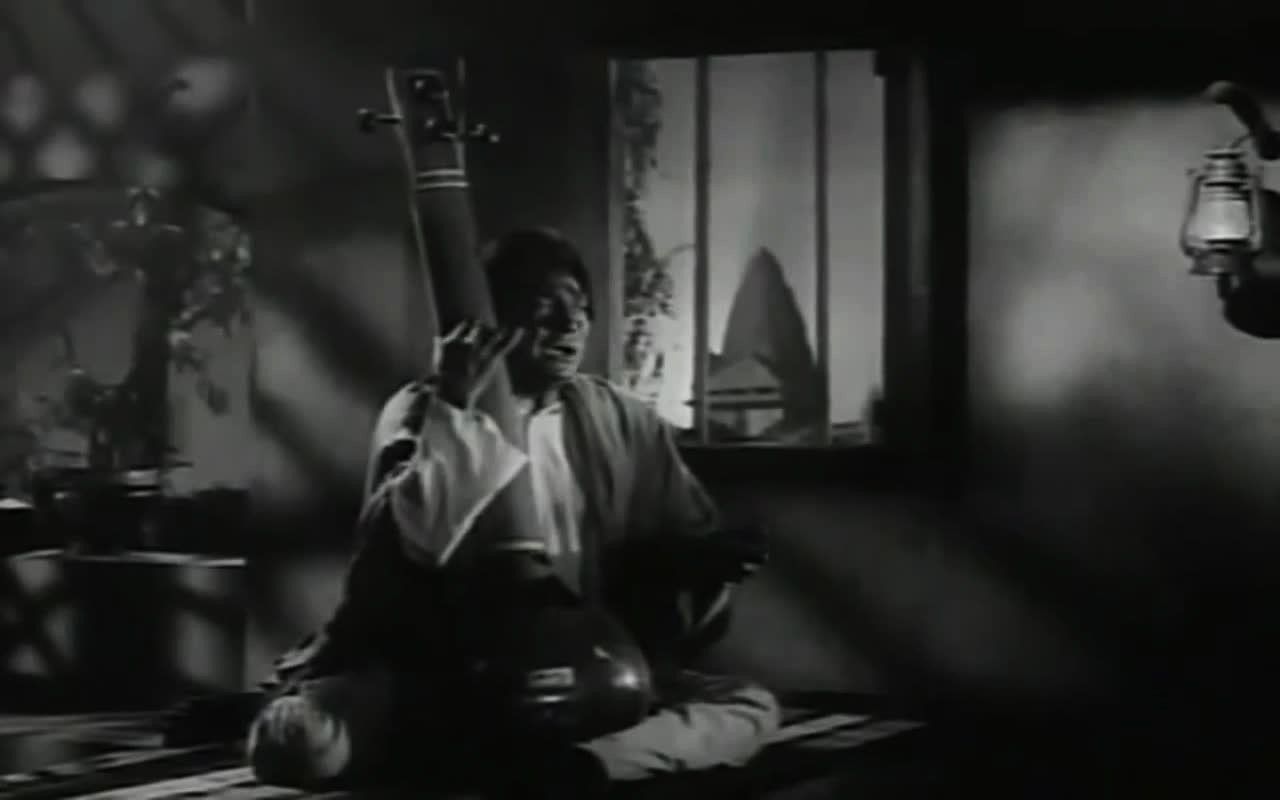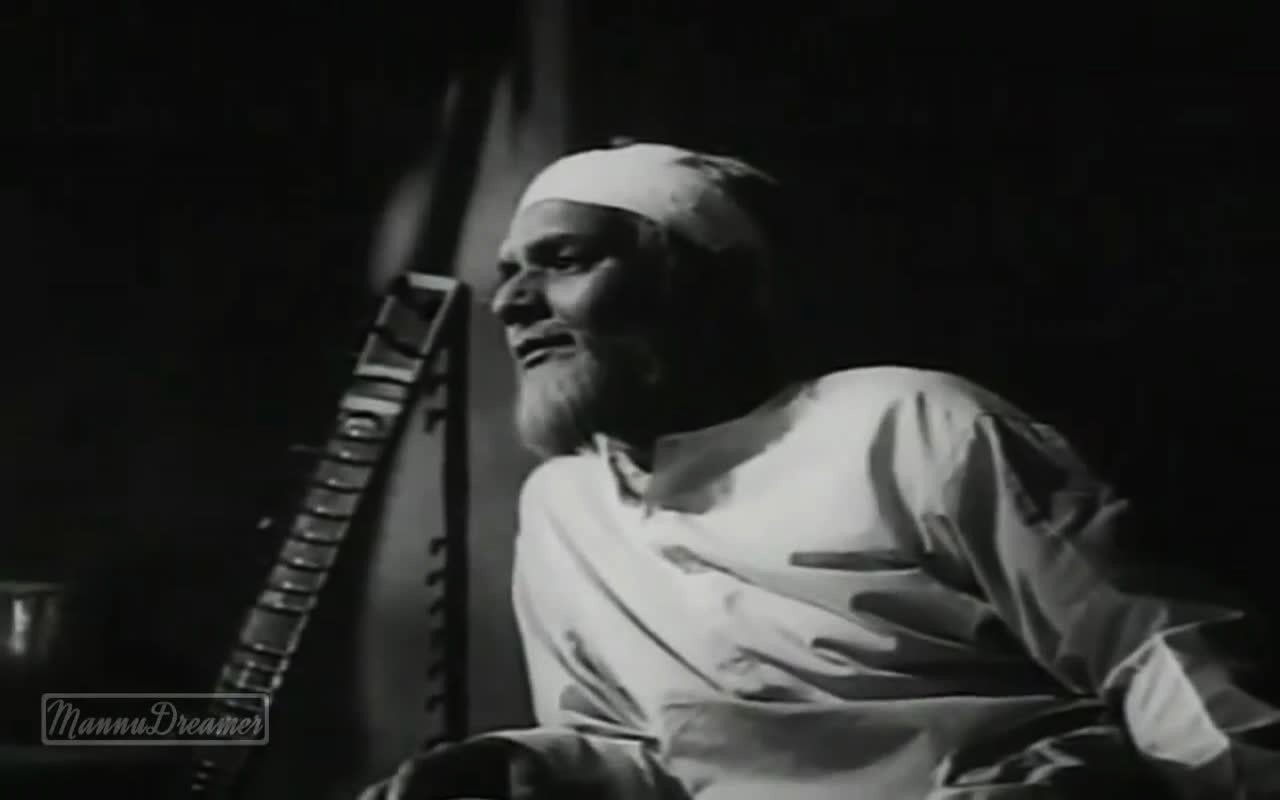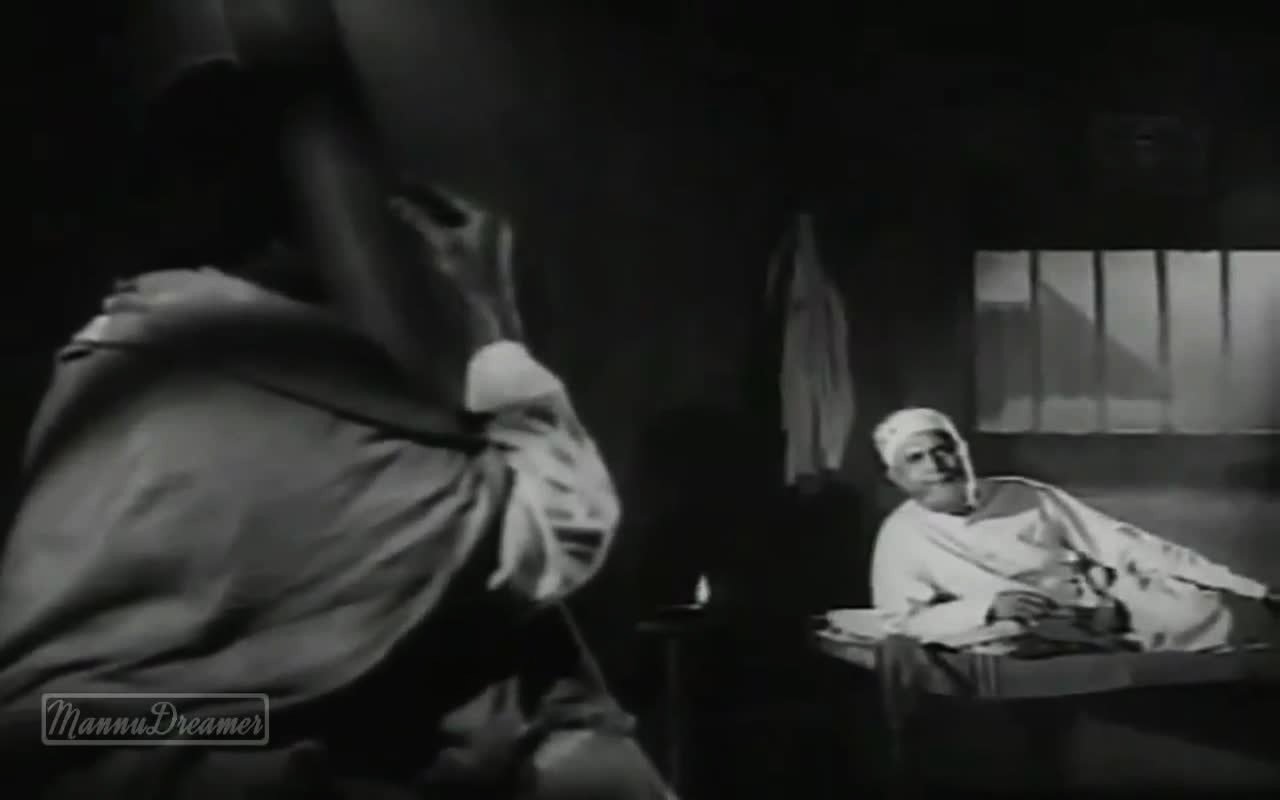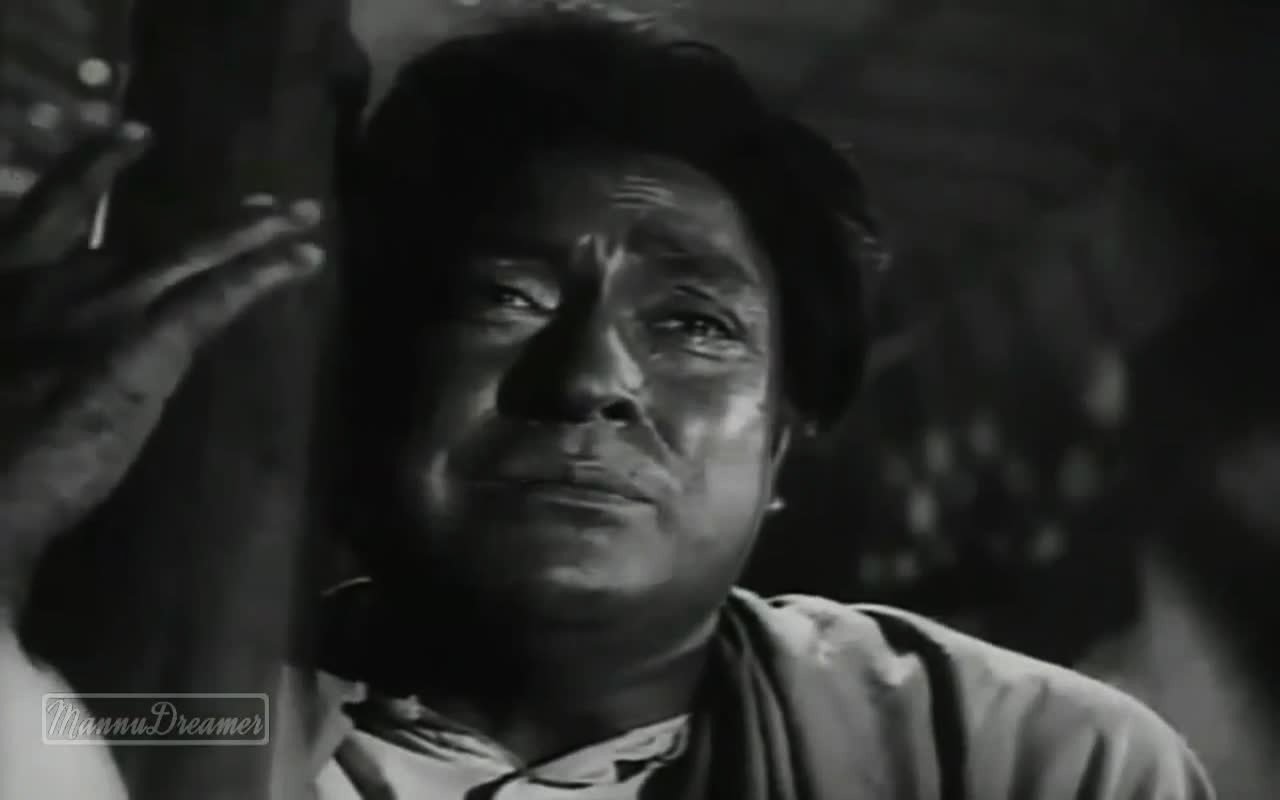
Table of Contents
When the film Meri Surat Teri Ankhen was released in 1963, the already venerable Ashok Kumar had been a leading man in Indian cinema for nearly three decades. He would go on to act for an equal number of decades after this point, so this could be seen as a middle point in his career. This was a classically melodramatic film with all the sufferings and tragedies you could throw at the protagonist, and the songs were accordingly heart wrenching. Not the least of these was the song Poocho na kaise maine rain bitai, which remains one of singer Manna Dey most well-loved renditions.
The film was a heavily moral one, dealing with a child rejected for its ugliness, but unlike most popular actors who tackle such heavy subject matter later in their careers, this was par for the course for Ashok Kumar who’s fist big film role was in Achhoot Kanya which dealt with the caste divide, an even trickier subject at the time. In Meri Surat Teri Ankhen, classical music played a crucial role in the plot, something our protagonist is trained in by his adopted Father, and so the songs were very traditional and classical in their composition and wordings. This would make Poocho na kaise maine rain bitai unique and memorable in a time of more light-hearted musical tastes.

Poocho Na Kaise Maine Rain Bitai – The Song
Being quite the theatrical film, Ashok Kumar‘s character Pyaare is depicted as ugly by a mere darkening of skin colour and some less than flattering hair. The politically correct might baulk at it, but it’s not a bad device considering how much skin colour is still an over-arching factor in Indian society and the world at large. The actor plays his part with an innocent dramatism which he would always be recognised for, and he does it well. His co-actor, Kanhaiyalal, a veteran supporting actor who plays his adopted father Rehmat does an ailing act that would perhaps be the template for melodramatic suffering for many decades to come. Shades of that laboured speech and foreboding lines from the soon to be deceased characters, stick around still on the peripheries of even the most avant garde modern Hindi film.

Director R.K. Rakhan and cinematographer Ratan L. Nagar add as much to the stark drama of the situation as the players on screen. Much of the preceding scene and the song are about light and darkness, hope and despair, all tied into the metaphor of light. The song is beautifully shot in a heavily shadowed set with dramatic shadows cast by the roof, lanterns, skylight through the window and the requisite symbolic oil lamp burning near our ailing patient. All make for a very memorable setting and one filled with symbolism.
S.D. Burman‘s music is wonderfully understated, letting the voice take precedence when it should, and swelling to a wailing, melodramatic note when required. It’s all very structured and classical in its design, and all this is danced around beautifully by Manna Dey‘s wonderful voice that both sticks to the structure of the melody and the tabla rhythm, while also swimming between and over the notes and beats rather than being constrained by them. There have been few singers of this calibre anywhere in the world and few will reach this level of seemingly casual accomplishment as Manna Dey does in this song.

The words too stick to the overarching theme of this song, light and dark. Shailendra‘s lyrics are sufficiently dramatic while also keeping to a very poetic and formal sort of language, which was even more common in the classical music of the time. In spite of that, the words are surprisingly efficient:
Na kahin chanda, na kahin taare,
Jyot ke pyaase mere, nain bichare,
Bhor bhi aas ki kiran na layi,
Poocho na kaise maine rain bitai
The Moon is missing, the stars have gone,
They thirst for light, my eyes forlorn,
Even dawn brings not the hope I craved,
Ask me not how this night was braved.
I am not the greatest fan of melancholy music but I can’t help admire the almost hopeful quality of the singing in this one. So smooth is the voice and so supportive is the music, that you can almost forget the import of the song and simply enjoy it for what it is in abstract. Dramatic but simple, a rare combination, Poocho na kaise maine rain bitai is a song worth savouring.
Poocho Na Kaise Maine Rain Bitai Song Video
- YouTube [Audio]
- Dailymotion
- YouTube [Audio only]